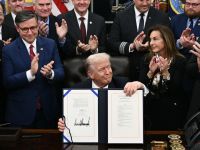APEC on Saturday urged member economies to respect the grouping's regional free trade goals, as Japan defended a drive to go its own way with Singapore.
"That is the concern, with respect to regional (including bilateral) trade agreements, that they could erect discriminatory barriers between members," said Joseph Damond, chairman of the Asia-Pacific Economic Cooperation (APEC) forum's trade and investment committee.
"However, there's also the view that's been expressed that such agreements could serve in a dynamic sense as building blocks towards regional or multilateral free trade," the US Treasury official told a briefing as APEC officials met in Brunei.
APEC was set up in 1989 to promote free trade and investment at the regional level, but has made only faltering progress towards the goal.
Individual members led by Japan and Singapore are working towards their own bilateral free-trade agreements, sparking fears that APEC's relevance could be even further eroded.
"The idea is that such agreements should be structured so that they are supportive of multilateral free trade and regional free trade, and that care should be given as to how they are structured so that they are supportive of that," Damond said.
"There's no presumption that they're not supportive of that, it's just a question of giving care so that they are."
Japan defended itself from charges that it was undermining APEC and the World Trade Organization (WTO) by agreeing last month with Singapore to forge a free-trade pact no later than December 2001.
"Yes, we have been a strong supporter of the multilateral framework, but two or three years ago we started seeing the merits of a free bilateral trade pact," said Hidetaka Saeki, deputy director-general for development cooperation at Japan's trade ministry.
Japan's review of its traditional stand on free-trade agreements (FTAs) accelerated after last December's protest-plagued WTO ministerial meeting in Seattle.
Singapore has no agricultural sector of any note, so an FTA with the city-state would pose no threat to Japan's heavily protected farmers.
A dispute over farming subsidies between Japan and Europe on the one side, and the United States on the other, was one of the core reasons why the Seattle WTO meeting ended in failure.
"A free regional trade agreement is not a bad thing," Saeki added.
"We are building regional economic blocs that are expansive, inclusive and open," he said. "It is faster than waiting for a common tune that everyone can agree on to dance."
Takatoshi Ito, deputy vice finance minister, also insisted Japan was staying true to the spirit of global free trade.
"Forming a regional trade agreement would not impede WTO negotiations," he wrote in the Asahi Shimbun newspaper.
"On the contrary, it would underpin them," said Ito, who was part of the Japanese delegation at an APEC finance ministers' meeting here in September.
"Creating a good regional trade pact would become a spur to starting a new round of WTO talks," he said -- BANDAR SERI BEGAWAN (AFP)
© 2000 Al Bawaba (www.albawaba.com)







